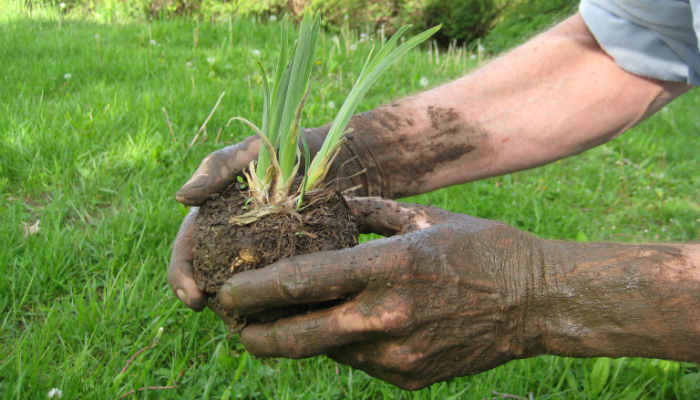Tips on Outdoor Hand Care

Following up on my blog about maintenance of conservation hand tools, I thought it appropriate to also post a note about care of our outdoor hands. Working and playing outdoors can be kinda rough on hands, whether planting trees or lipping bass. I find that gloves diminish dexterity, whether you’re separating roots or manipulating fishing lures, so I wind up barehanded much of the time. If that describes you too, here are my suggestions:
Most hand lotions and hand creams are emulsions of some oil or fat in water, and the label will usually list water as the first ingredient. Unfortunately, these products quickly dissolve away in dirt or water when working outside. When your hands are continuously exposed, you need something very insoluble and my first choice is Vaseline. Beef, deer, or bear fat also work pretty well if you store a chunk in the fridge to help keep it from turning rancid. This will also make you more interesting to your neighborhood dogs. If you are anticipating some lightweight encounters with pine pitch, Vaseline or animal fat already worked into your skin will help keep it from adhering and make it easier to scrub off later. But if you really get glued up with pine pitch, then you need a solvent, most of which, like gasoline or turpentine, are not very friendly to your health. I use the product called Tech-Nu, which contains a solvent intended to dissolve and remove poison ivy resins, and which doesn’t seem to penetrate into my skin very much. This solvent also does a good job of removing pine pitch and spruce resin, and a final lather-up with Lava soap will remove all of the Tech-Nu, which is sorta slimy. Keep in mind, if you plan on storing it for years, this product will also slowly dissolve the plastic bottle that it is sold in, so I transfer mine to a glass canning jar, properly labeled.
When I’m working in the dirt, I find cotton and leather gloves will also suck the natural oils from my hands, and a light application of Vaseline beforehand can be worthwhile. I do not wear plastic gloves, having twice gotten an athlete’s foot type of fungus infection between my fingers from sweating inside them.
Working in engines and old greasy equipment also often means working barehanded for dexterity, and subsequently means difficulty ever getting your fingernails clean again. However, your cleanup will be easier if you keep your nails short, and at the beginning of the day work your nails into a bar of soft soap like Ivory, and at the end of the day gently scrub the soap back out with warm water and a brush.
So with a bit of proactive preventative care, you can keep your outdoor hands in as good a condition as your conservation tools – which will help keep you outside working on all of your conservation projects!
Tags: dirt, gloves, hand care, Lon Drake, Tech-Nu

